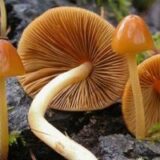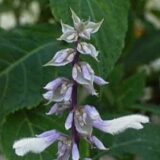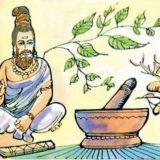Table of Contents
Why Do People Use Hallucinogens?

What Are Hallucinogens Used For?
Hallucinogens have been around for as long as man has…and longer. Plants have existed for a lot longer than many species and so have their intoxicating and hallucinogenic abilities. Many people typically avoid hallucinogens for their known toxicity and unpleasant aftereffects. Hallucinations scare many people. Still, there are some people who are very much likely to use hallucinogens. Many of these people use hallucinogens for religious purposes, as they are important in ceremonies. There are shamans who use hallucinogens for divination, clarity, and to induce visions or dreams. Medicine Men of some tribes use hallucinogens for healing and to diagnose illness. And while there are many other categories of uses, the only remaining employment worth mentioning: recreational use. Breaking down the various uses can help provide insight as to why people would want to ingest a hallucinogen.
Why Do People Use Hallucinogens
There are so many reasons for hallucinogenic use around the world. The individual properties and effects of a hallucinogen, as well as where it is native, also help dictate a particular plant’s use. With that said, here are some of the most common uses and the reasons why.
Hallucinogens For Religious Use
Many plants and herbs that grow on Earth are important to various cultures within the regions of which the respective plants are native. Of the many plants used in religious ceremonies, or for religious purposes, hallucinogens are frequently found. And of the many uses for hallucinogens, religious used to be the most common. This is probably because of the larger number of people who have contributed in consuming the herbs. If a society is groomed to believe that an herb or plant possesses a certain spiritual or divine power, they are more likely to take part in nearly any ritual surrounding that plant (assuming the effects are supposed to be positive). Most of the ancient cultures which employed hallucinogens in their society for religious purposes, believed that the plants were gifts, being given to them by the Gods in order to communicate in a spiritual or divine way, or receive other types of positive effects (healing, spirit walking, penance, etc).
Hallucinogens Used By Shaman

Shaman are considered priests in many cultures. They have the ability to sometimes diagnose, heal or treat, dream walk, receive visions or prophecies, among many other talents. A shaman may use a hallucinogen differently depending upon the plant and culture. Shaman are sort of like some cultures’ exclusions to the status quo. Although many cultures which still have shamans may seem eccentric all around to the Western world, there shamen are far more eccentric than the tribal people themselves. While in the Western world, a user of a hallucinogen waving their arms sporadically shouting all sorts of gibberish while dancing around another person would lead to a trip to the insane asylum… Shaman of tribal cultures frequently partake in the sorts of rituals in order to get visions, find out what is wrong with someone spiritually, predict the future, see into the past, communicate with ancestors or the deceased, or even communicate with the Gods. The people of their culture understand this and these types of behaviors are not delirious to them, but acceptable and even warranted. No matter what other cultures may think about a shamanic ritual, the shaman themselves will swear by a hallucinogen’s effectiveness at achieving greater spiritual connectivity and/or power.
Hallucinogens For Medicinal Purposes
Medicine Men of many cultures around the world have employed the use of hallucinogens to achieve a variety of effects, or to receive information. There are so many purposes for hallucinogens when it comes to traditional and ancient medicines of various cultures around the world. Sometimes the herbs are used in ways which modern medicine would consider phony or illegitimate. Other cultures may call it pseudo-medicine. Yet the early traditions of ancient cultures and some tribes which exist still today, have relied upon some hallucinogens in their regular repertoire of medicine and healing. Many times hallucinogens can be used to diagnose, whether they are given to ailing patients or taken by healer themselves. Unfortunately there are also some dubious uses of hallucinogens in the world of tribal medicine. Some cultures have used these herbs for abortifacient purposes, keeping constantly pregnant women in their societies from having babies. In some cultures, such as the Jivaro tribe, hallucinogens are administered to children for a variety of reasons or rituals.
Recreational Use of Hallucinogens

Regardless of how many religious, traditional or medicinal uses may exist, there will still always be people who enjoy hallucinogens for their raw offering of euphoria and adventure. Recreational users enjoy hallucinogens for reasons primarily of fun and self-exploration.
There has been a recent surge in the use of psychoactive plants as well as hallucinogens in Western societies. Although most of the use of these plants, even for recreation, is very similar today as it was in ancient times, there is one fundamental difference: belief system. When these plants are found in use for recreation, the users typically do not share the ancient beliefs that use to accompany the plants. In fact most recreational users do not consider the plants to be anything more than plants. Most ancient use of the plants as hallucinogens follow a common theme and belief that the plants themselves are a gift from the Gods. This lack of belief in the higher spiritual value of the herbs that is present in today’s recreational use, probably contributes to a lot of the plants being so misunderstood. Today, hallucinogens used for recreation are treated much like any other commodity, being bought, sold, imported, exported, and of course like everything else, consumed in excessive quantities.
It should be noted, however, that there are still ancient uses of hallucinogens for recreation recorded throughout history. One key example is the Soma drink. Soma is actually in ancient God of narcotics in India. The Soma drink became so popular that it would inspire bars around the world to serve this hallucinogenic, psychoactive beverage instead of alcohol. There are also many instances throughout the world in various Indian cultures where hallucinogens are employed for recreation during celebrations.

The negative stigma surrounding recreational hallucinogen use is usually due to the inebriating and what people appear to be ‘uncontrollable’ effects that the plants have on the body. In theory, if most people who take hallucinogens had a positive experience than they would be used more often. The problem is that many people who take hallucinogens are amateurs and they do not know what they are doing, thus they may end up with a horrible experience. Another problem is that hallucinogens are usually illegal. Because hallucinogens are legal there is less opportunity to experiment, research, and perform trial and error type of usage. If hallucinogens were legal, amateurs would become regular users with experience, and more positive experiences would be achieved.
Last Words About Using Hallucinogens
Sometimes hallucinogens and the reasons for using them only make sense to the culture, tribe, shaman or person employing the herb. Hallucinogenic plants are some of the most misunderstood plants around the world. The general stigma surrounding hallucinogens leads many people to overlook the positive effects that they can provide. Whether it is to provide the body a sort of ‘psychedelic’ cleansing, help find an answer or diagnose an illness, or just to unwind, people will continue to use hallucinogens and other psychoactive plants around the world for as long as they continue to grow!
Disclaimer: This article is for educational and informational purposes only.




